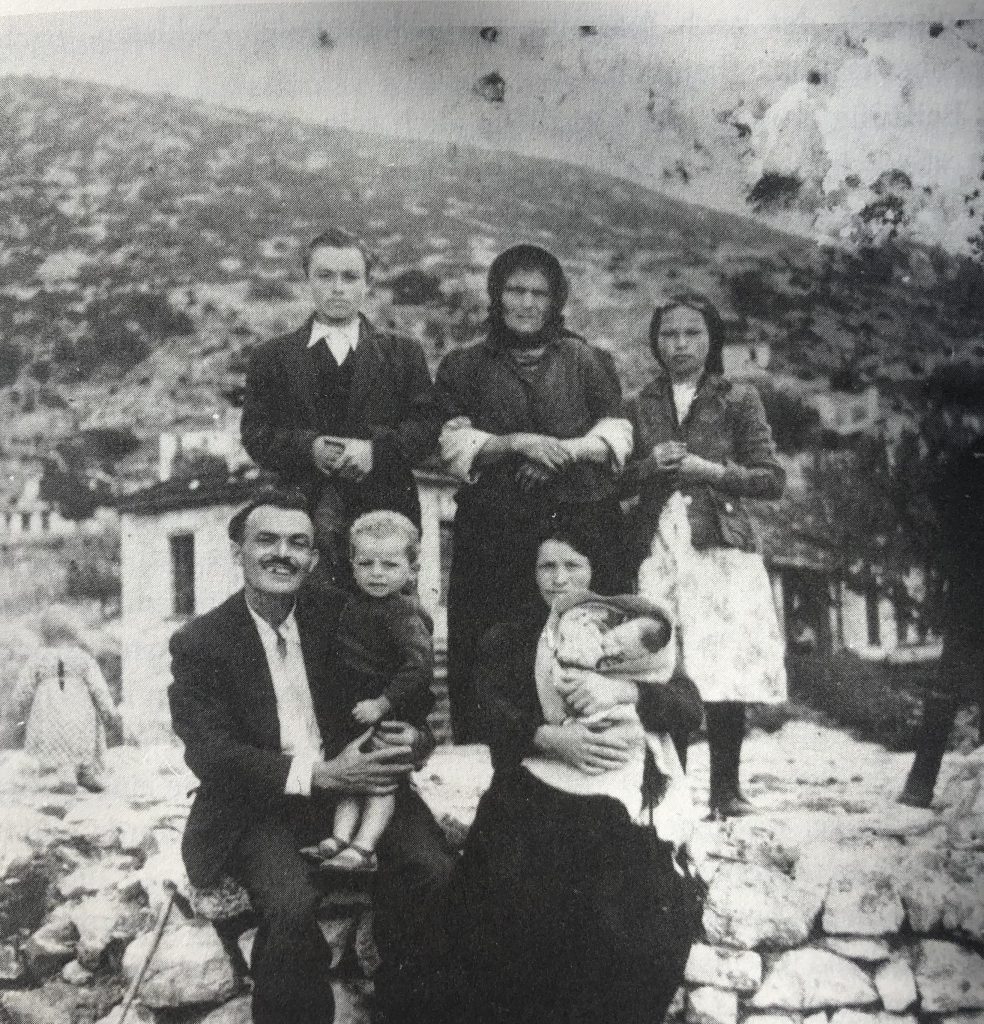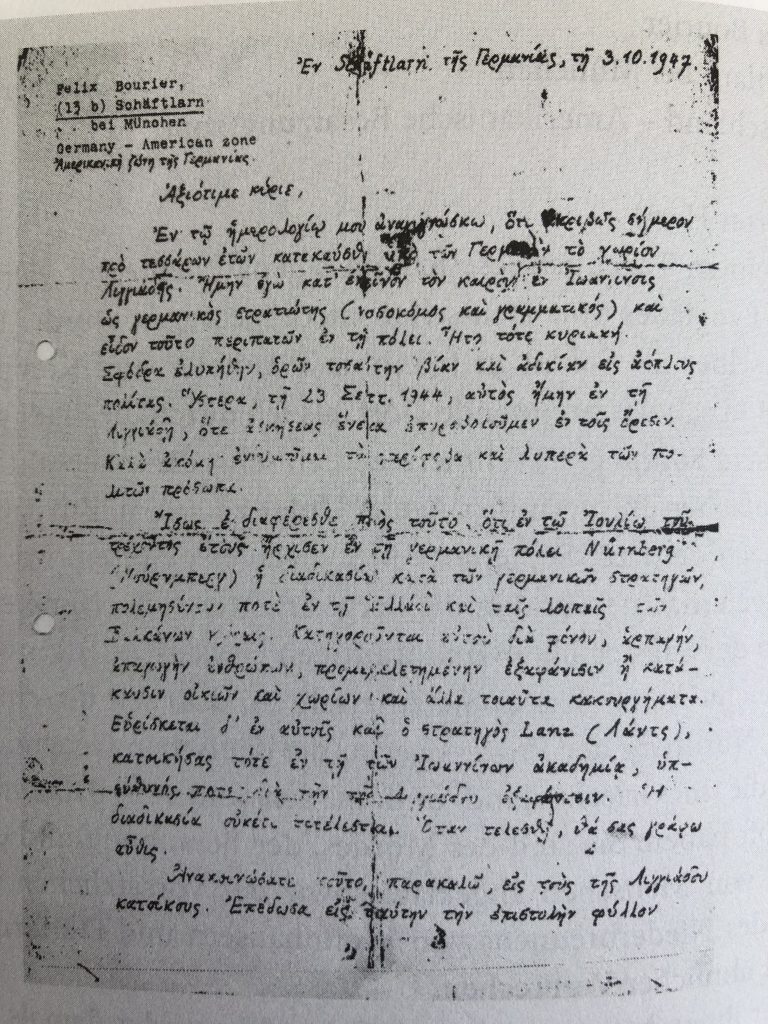
The Germans notoriously lied about the circumstances of their attack afterwards, being completely aware that the massacre was a breach of the international law and rules of war. In the German report written after the massacre it says that the “cleansing operation” against Struni, Ligiades and the surrounding hills were completed. It states that there existed “weak enemy resistance” from the people living in Ligiades; 50 civilians were killed, munition stocks were blown up and 20 mules captured.
The annotation that munition stocks existed in Ligiades was supposed to somehow convey that their actions were justified to a certain degree. However, none of these words mirror what actually happened.
There are no sources which reveal how the the people of Ioannina reacted to and felt about the massacre. Directly afterwards, some members of the local population went to the German military administration to express their rage. The German administration tried to downplay the situation by saying that only partisans were killed and everything else was lies.
Nevertheless, they seemingly felt they had to react and so sent a commission up to Ligiades to pretend to try and investigate what had happened. That is why one month later, some Germans went with Poulmendis, the interpreter of the German field police, to Ligiades. This was to no avail, because there was nobody in the village to be questioned. According to Poulmendis’ account, the Germans returned with him and some former inhabitants of Ligiades two weeks later; the Greeks were supposed to count the murdered people. Poulmendis understood, however, that the goal of the investigation was not to figure out the correct amount of dead people, but to minimize it; the Nazis supposedly said things like: “80 dead people? There were not even 10.” Another Greek eye-witness says that they were told to excavate the corpses, but that they had to stop due to the “sickening smell”. Additionally, according, to one of the survivors, all five survivors were appointed to the commander’s office and questioned by the Germans, but it is not known by whom exactly and what specifically was asked. The only known aspect is, that, in the end, there was no follow-up to this examination.
Later, on the 3rd October 1947, Felix Fourier, paramedic of the German mountain infantry in Ioannina, sent a letter to the village of Ligiades in which he apologized for the action of the soldiers. He also informed them about the trials in Nuremberg in which also Hubert Lanz was indicted. Translated it says:

Honored Mister,
in my diary I read that exactly today, four years ago, the village of Ligiades was burned down by the Germans: I myself was soldier in Ioannina back then (paramedic and writer of the company) and saw the burning village when I walked through the city. It was on a Sunday. It hurt me a lot to see this act of violence and this atrocity, committed on simple citizens. Before, I was myself in Ligiades after the 22nd of September, where we did target practices and fired in the mountains. I remember exactly the scared and sad faces of the villagers.
Maybe you are interested in hearing that since this July, in the city of Nuremberg, the trial against generals that fought in Greece and other Balcan countries started. They are accused of murder, robbery and the abduction of people as well as the deliberate destruction and burning of houses and villages and similar crimes.
Among them is also general Lanz, who had his registered office in Ioannina and is responsible for the destruction in Ligiades. The trial isn’t finished yet. As soon as the verdict is announced I will write to you again. Please share this letter with the inhabitants of Ligiades. I accompany this letter with a newspaper article of a German newspaper that reported about this topic. Please answer me if you get this letter. I hope that God won’t allow to ever let such a tragedy happen to you or Greece again.
I greet you cordially, although I am unknown for you.
Yours,
Felix Bourier
With the knowledge of this crime, he didn’t seem to be able to go back to normal life. He went to a monastery in Schäftlarn, took the name Pater Basil and died there in 1994. The people from Ligiades never went to the trials in Nuremberg. At that point in time, the civil war in Greece was raging and there was no money or possibility for the villagers to go to Germany. As they had lost everything, for a long time they were forced to live in the forest and in caves and had to resort to beggary. Gradually they came back into the village, rebuilding their destroyed houses. Often they found the remains of their burned relatives reminding them of the horrendous things that happened on the 3rd October 1943.